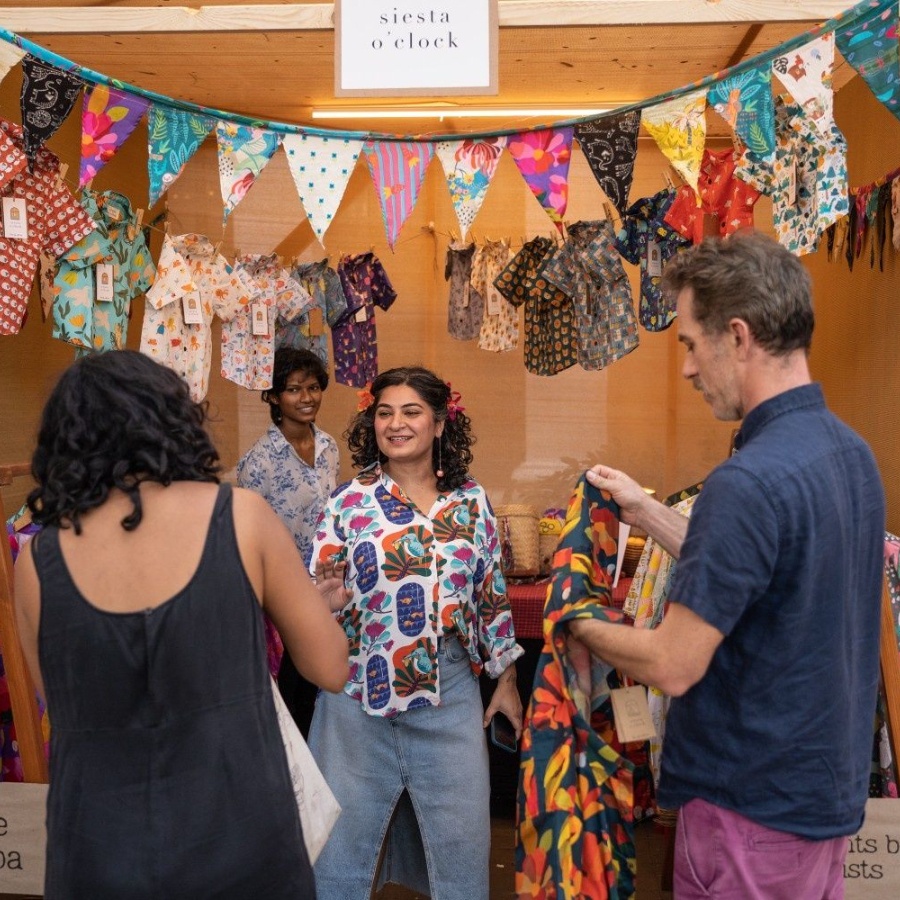Two and a half years ago, when I moved in with my boyfriend, I didn’t imagine sitting on our couch and playing a video game would be our unanimous idea of a successful date night. Sure, we did the occasional Wordle. On my phone, I had tapped through adventures with Sneaky Sasquatch, overdosed on dopamine from satisfying match-3 games like Gardenscapes, and embarked on endless snowboarding sessions with Alto’s Adventure. But console gaming with a controller? I didn’t think I had it.
Over the years, I’ve watched my partner—and his other friends—frenetically play FIFA, but only when we started playing together did I realise how vast and immersive the universe of console gaming was. And my gateway to console gaming came via couch co-op.
Co-op games aren’t new—they go as far back as the heyday of arcade video games of the 1970s—but in the last few years there has been a global resurgence, largely sparked by a handful of indie co-op releases inching to the top of bestseller lists. Couch co-op is exactly what it sounds like: it’s a genre of two-player (sometimes more) video games, typically played side-by-side, ie, on the couch, and it is most often cooperative, not competitive.
Forget clichés of lonely, hooded figures bracketed by big noise-cancelling headphones, hunched over ergonomic black gaming chairs, with a torn-open packet of chips beside them. Couples today are making gaming nights a lot cosier. In our house, you’ll find us with the lights turned low, our respective glasses of wine and whisky on the teapoy, and our legs curled up on the couch—or at least that’s the scene until a boss battle ensues.
Low-effort and high-reward, it’s cheaper than a date night at a fine-dining restaurant. Forget spitting bills; here, only one person needs to buy and download the game (some co-op games even offer a Friend’s Pass, so if your partner isn’t in the same room, they can play with you online for free).
The first game my partner and I played together on our PlayStation 5 was It Takes Two, a landmark couch co-op game that released in 2021. Its game mechanics were easy to learn and incredibly intuitive to play for first timers. The premise is that a couple on the verge of divorce is turned into toys by their five-year-old, only to be forced to learn to ‘collaborate’ through a series of excellent puzzles and adventures and work on their relationship. It’s a simple story, but the game’s rewarding puzzles and quests reel you in. The scenes may be set at home, but it is stepping into imaginative, far-from-domestic worlds—solving intricate puzzles, slashing venomous plants, fighting wasps—that pushes the characters to work on their communication and collaboration skills. A thoughtful reminder to shake things up for real-life couples too.
Over the year, we have played a variety of couch co-op games: the action role-playing Cat Quest II, where we were a sword-wielding cat-and-dog duo; puzzle platformer Unravel Two, which features puzzles that two bits of thread have to solve in tandem; the hilarious Untitled Goose Game (described by its makers as “slapstick-stealth-sandbox”) that’s a perfect pastime; high-pressure cooking simulation Overcooked 2, which could put Gordon Ramsay’s kitchens to the test; and my favourite, the exceptional action-adventure Split Fiction (a recent release from the makers of It Takes Two), which opens a new chapter to co-op gameplay and world-building.
Mumbai-based Nadine Kotval, 35, was drawn to co-op gaming for the most obvious reason: “There’s a lot of things that you do as a couple—laundry, dishes, chores—that involve teamwork, but games are more fun.” Kotval, a senior consultant with the India Climate Collaborative, started playing on the Nintendo Switch with her husband, Karun Kannampilly, a 35-year-old musician, music educator, and the founder of Drum House, when they moved in together three and a half years ago.
Like me, she had internalised the gender imbalance that we all associate with video games. “I didn’t think gaming was a hobby for me,” she says, “It was always only the boys that played video games. When I saw how passionate Karun was about his games, and how much he wanted me to be a part of it, it sparked my interest.”
Kannampilly also credits the beginner-friendly Nintendo Switch as a soft launch into more women taking up gaming. “You can introduce [Nintendo games] to anybody—they always have high skill caps, but the entry point is really low, which makes it really fun.”
These days, the new parents don’t play as often as they used to, but they usually played a couple of times a month at the very least. “When we were playing It Takes Two, we knew other couples that were playing too, and we would discuss the game with them. If they were a level ahead, we’d push ourselves to play more often over a couple of consecutive days,” says Kotval as if talking about a new TV show you need to catch up on before the spoilers arrive.
Of course, you don’t have to live together to play together. Bengaluru-based architect Rachita Bhonsle, 35, and mental health counsellor Pranav Prakash, 30, who started dating three years ago, have been playing an average of three to four hours every week for most of that time. Bhonsle started gaming in her teens with her brother, while Prakash saw it as a solo activity. Things are different now: “It’s been such an amazing experience,” he says of his gaming partner. “I’m so glad I get to share this part of my life with her. It’s turned into something we both love doing together.”
For gaming couples, co-op games can offer deep connection and a sense of purpose. Such games are known to “unite players towards shared goals, emphasising teamwork and communication over competition”, reports GameRx, an online resource on wellness and gaming. Prakash, also a therapist who works with couples, is keen to explore how gaming could be integrated into a therapeutic setup. “I think couch co-op gaming could work to actually test a couple’s communication, teamwork, and collaboration skills, without actually having them talk about it,” he shares.
But even away from the therapist’s couch, playing can offer deeper insight into your partner’s brain. “I’ve marvelled on numerous occasions at Rachita’s problem-solving ability,” Prakash tells me. “She’s not stressing about double-jumping, swinging, and then dodging like I am; she’s actually observing the environment and figuring out clues.”
Like any modern relationship tool, it has its ups and downs. “It turns up the stress levels and anxiety a bit sometimes,” Prakash says. “Often, because I’ve had more experience playing video games, I’m more technically proficient with the controls. So, it takes time to get in sync with what we have to do, and communication becomes a very important part of that.” Bhonsle chimes in, “We have to remind ourselves fairly frequently that we just need to calm down and take a breather before we get back at it.” I can relate: My partner and I have found ourselves snapping at each other over repeated wrong turns or lost boss battles. But multiple games later, we’re both better at our reflexes.
Despite the frustrations, couch co-op is mostly just joyous—there’s a thrill to defeating villains, puzzling together, and sometimes being awed by brilliant storytelling, animation, and design. “There’s so much excitement and gratification when you beat a hard level or figure out a tricky puzzle, and you get to see reactions in real time. It’s not online where someone types ‘lol’,” Kannampilly says.
The practicality of it is an another plus. “It’s often something you can do very easily—you don’t have to go somewhere to play a physical sport together,” stresses Kotval. Sure, it won’t give you the kind of workout that a padel or pickleball game would, but maybe the millennials have figured this one out—date nights are meant to stay simple.
In the gaming industry, couch co-op lovers remain an underrepresented demographic that is only beginning to get the attention it deserves. Last month, LEGO and indie favourite Annapurna Interactive released LEGO Voyagers, Lego’s first truly co-op video game, which offers an exciting time to jump on the couch co-op bandwagon, if you haven’t already.
When my boyfriend and I play together, we mull over decisions for characters, plot the best routes, lose (and find) patience with each other, and gleefully high-five when we win super-hard levels. To think that video games would bring the adventures of our lifetime right to our cosy couch? Maybe we’d have moved in together sooner.


